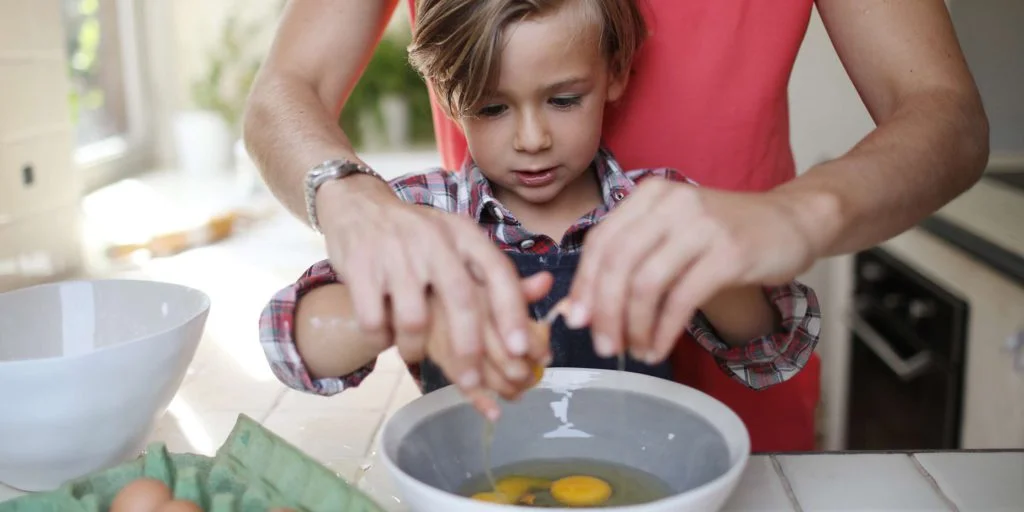
Gone are the days when children were excluded from the kitchen because they were too young to handle things. Today’s hands-on parenting style demands that children are adept at basic life skills which include cooking and cleaning. Children stand to achieve much from learning how to cook- right from an increase in creative skills, hand to eye coordination, and another stress buster to alleviate them from the monotony of school life.
If you think that cooking is gender-specific, you stand corrected. Regardless of gender, cooking helps in personality and skill development. These advantages are –
Building Basic Skills
When a child learns how to cook, the primary advantage is that the child can learn simple skills, especially mathematical skills. These skills are attained through simple actions like counting eggs for a cake or measuring flour for dinner.
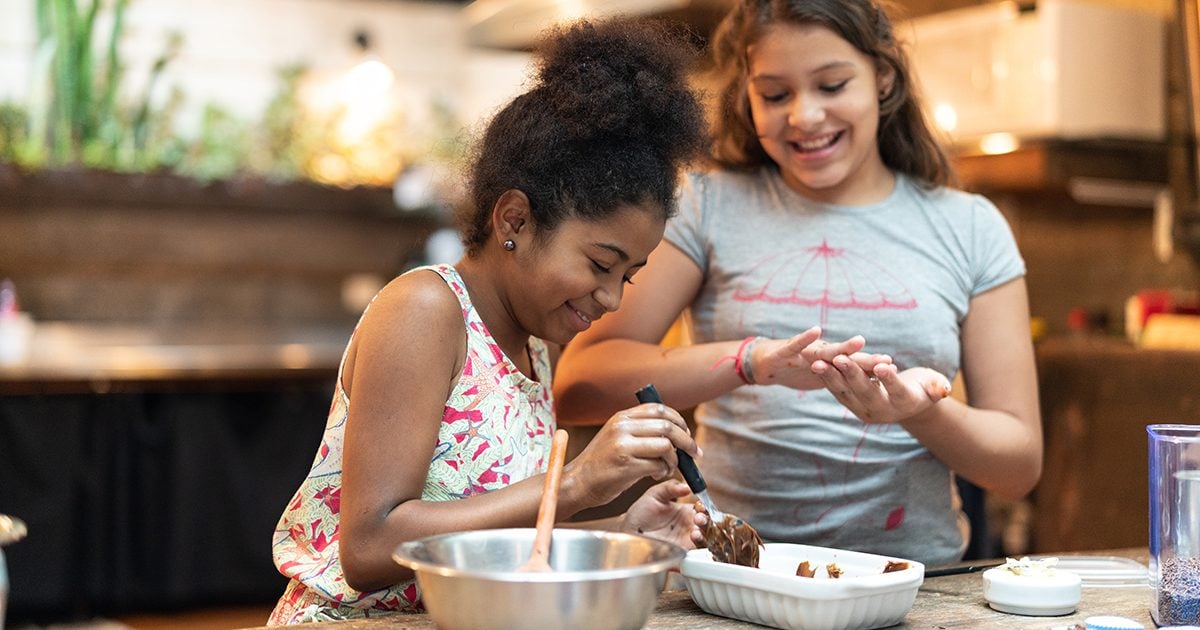
Children learn to observe ratios, patterns, and sequences when they are following recipes. You may also count on the process to help your child pick up new words and skills along the way. Therefore, cooking doesn’t just put food on the plate, it brings a plethora of advantages to the table for your child to benefit from. Moreover, it has a positive outcome on a child’s comprehension skills when they follow the recipes step by step.
Increase Use of Sense
Developing each sense (taste, smell, etc.) is a very important step in a child’s physical growth. These senses could be developed and often advanced when a child learns how to cook.
Cooking allows children to explore with their senses. The running of a grinder makes use of their auditory sense; kneading the dough and watching it rise makes use of their vision. Children’s olfactory (smell) senses come to play when they smell the food they made. Decipher if anything is missing, and finally taste it to confirm the taste and figure out what is missing; this action builds on their taste (gustatory senses). Working in the kitchen has proven to be an excellent source for development in the child.

Family Traditions
Food recipes are things that the elderly wish to preserve in the family. In a country like India, where culture and heritage are everything, teaching a child to make a family recipe educates them on family roots. The child also attains a sense of pride, knowing they could learn something passed down from generations. They feel like they are an important part of the family.
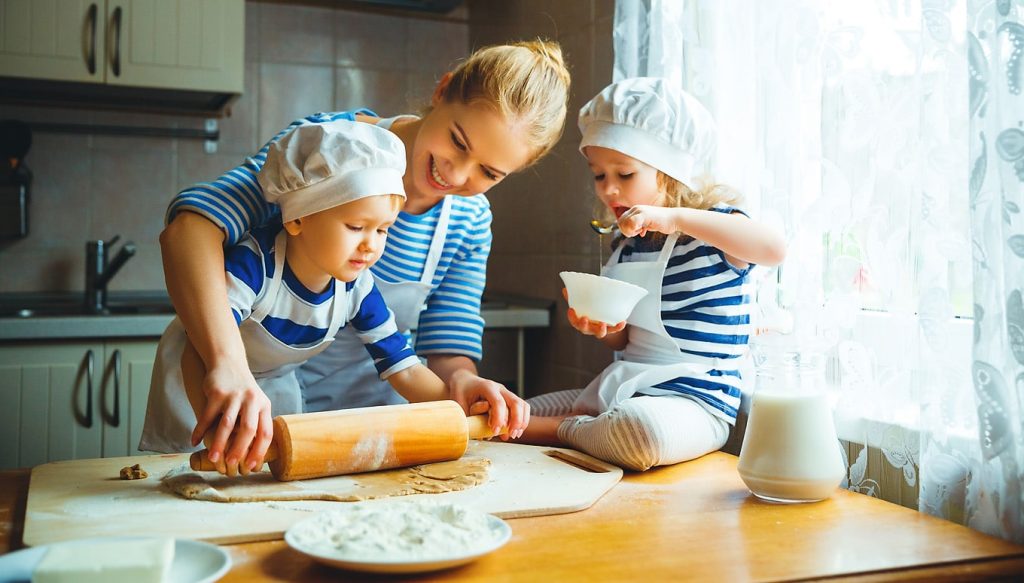
Self – Improvement
A lot of times, children cannot find a platform that uses their leadership skills. When children cook in the kitchen, even if it is something as small as making a sandwich, they take on the role of a responsible person in charge. This kind of responsibility also works on their feelings of accomplishment. When they successfully cook, they gain a sense of accomplishment. Positive reinforcement, however, is very important.
A child must be made aware that what they make is important and delicious. This boosts their confidence and encourages them to go to the kitchen again.
Health Benefits
In today’s world, most children are cooped up in front of their gadgets. Especially with a lockdown and the education system switching to online mode for imparting knowledge, the children’s screen time has increased. Eventually leading to various health-related issues like headache, sleep problems, and most importantly, obesity.
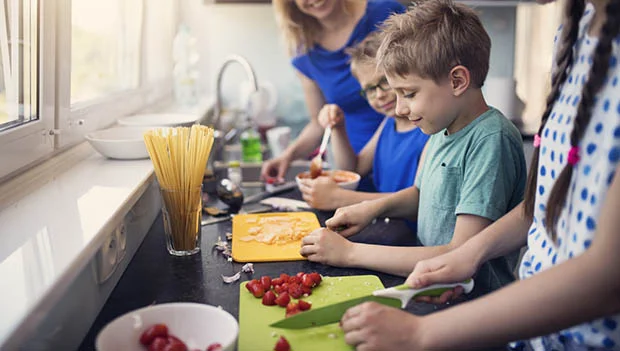
Engaging a child in the kitchen not only decreases their screen time but also allows the child to explore the food. Moreover, they stop relying on processed or packaged food. Packaged foods have chemicals and are often very difficult to digest. When a child learns to cook, they eat fresher and healthier food.
Appreciate and Respect
Children do not know the kind of effort, time, and patience it takes to make even a simple meal. Kids often think that making food is no big deal. Therefore do not appreciate the food nor respect the person who cooked the meal. When children engage in making meals, they realize the labor required for cooking, which builds emotions like value and esteem for the person providing the meal.
Teamwork and Cooperation
The kitchen is a space where children need to work in a team. Even when cooking with a parent, the child must know that a delicious meal can only be made when it’s cooked under the spirit of teamwork and cooperation. While baking a cake, the child realizes that it’s not possible to bake it alone since he requires the help of someone else to beat the batter and even probably put it in the oven. Kids then learn the importance of working as a team, and also, while spending time with other people, the child almost unconsciously builds on his social skills.
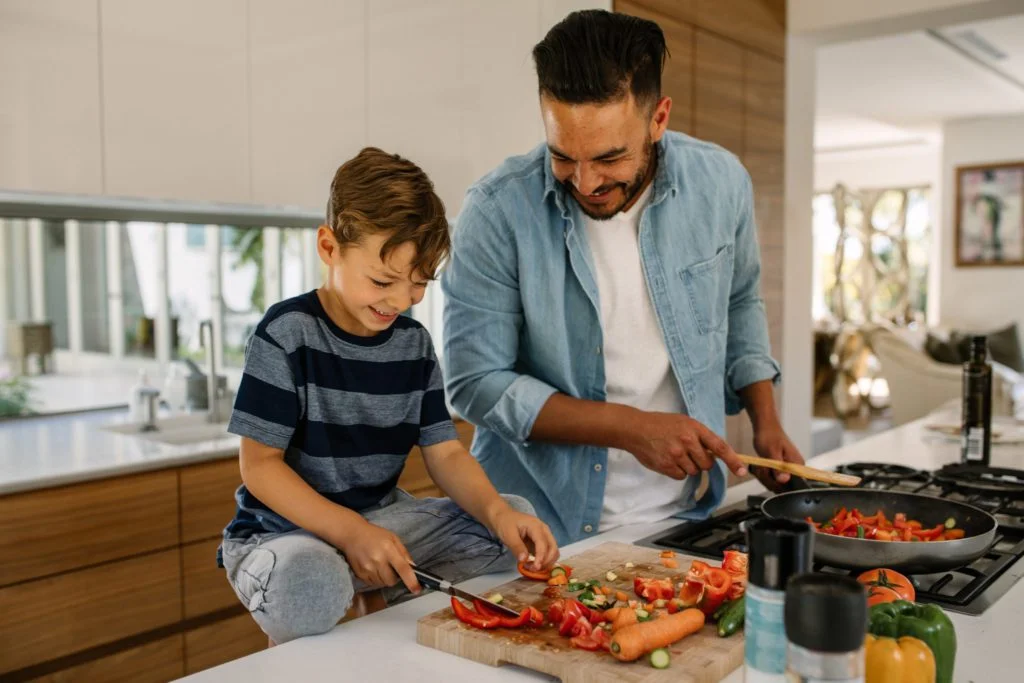
These benefits clearly show how important it is for a child to learn how to cook. However, children don’t simply want to learn how to cook since there have been such advancements in technology and, to some extent, workload (homework and extracurricular activities). Nevertheless, there are some simple ways to encourage and motivate a child to cook.

- Parents can sit down with their children and watch cooking shows together instead of using the basic cooking utensils; caretakers could make the child use clean kitchen toys or a unique-looking utensil.
- Parents should allow children to choose what they wish to eat; they become enthusiastic and motivated to help.
- A kitchen should be a place where parents allow kids to explore flavors, textures, and serving styles. This motivates the child to come up with new ideas.
- Asking for their inputs is another way a parent can motivate a child to cook since it allows them to feel valued.
A kitchen is a fun place for all ages and the best way to build on skills and learn about practical things in life. It also allows parents to spend more time with their kids, and the best part is, there is no age limit. Therefore, it is high time to break the stereotypical mindset of gender roles in the kitchen and open its door for everyone.
Share with your friends





